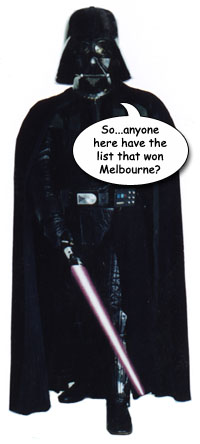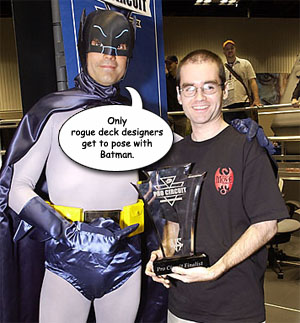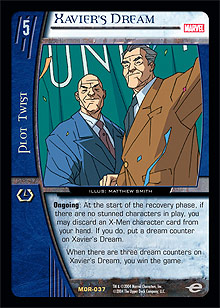
I was in two minds about how to write this article. While one of these minds may have been made up for the sake of keeping my theme going, I urge you to make up your own mind about which of my dual outlooks to go with. I won’t mind either way.
One of the cool things about comics is the way in which they approach good and evil. When you’re young, good and evil are very straightforward concepts—polar opposites easily distinguished in the mind. At the most basic level, superhero comics work in exactly the same way. There are heroes and villains, and each has their own core motivations that are either good or evil. So far so good. As one gets older, though, the only thing that remains clear is that nothing is as simple as it first seems.* Is it always wrong to lie? Honestly, I don’t think so. So too do our heroes become more interesting in their moral outlooks. Superman and Batman are both good guys, but one need only check out virtually any Justice League title to see that they don’t always see eye to eye on methodology.
With respect to finding a good deck to play in tournaments, there is also a bit of polarity among players as to methodology, and it’s not immediately obvious which is better. I could sit on the fence here, but rather than any such shilly shallying about, I am proud to sit on . . .
The side of the proud Rebel Alliance!
While Darth Vader and company had the cool bad boy image thing going on, and definitely had the better lines, there was always something special about the Rebels.** They did things their own way and ultimately prevailed against overwhelming odds through some combination of cunning, skill, luck, and the Hollywood Storyline Ending Commission.
We all want to be the loner with a dream who eventually overthrows “the man” to succeed in our vision and prove to all that it is in fact the differences between us that make us all special. Within Vs. System, this means bringing into being a new creation in deckbuilding which will take the world by storm and win its designer fame, fortune, and a montage ending with inspiring music, a photo, and details of where they went in later life.
People who go out of their way to design their own unique snowflake of a deck are typically known as rogue deckbuilders. It’s pretty natural to start out in the game with this sort of philosophy. Because access to cards and information is low as you start out in Vs. System, your builds will almost inevitably be a little off the beaten track. They’ll be shaped by a lack of experience in the game and the constraints of a limited selection of cards.
For some, this is where the story ends, but I have a sneaking suspicion that for anyone reading this article, there is a little more to tell. The internet is an amazing tool for the exchange of ideas and opinions, and for a game like Vs, it’s a fantastic resource for information about which decks are winning the most. If one is competitive, it’s easy to be lured in by the increasingly inaccurate photos of writers by the articles on Metagame.com and then hooked by the offers of information about who has won thousands of dollars and what their secrets are.
Of all the people on the Pro Circuit, there are a relatively small number of players who design their decks from the bottom up. There tends to be a low but telling percentage of decks in each event that are genuinely unexpected by the coverage staff and many of the players. The reason is simple—the prizes are not handed out to people who create incredible decks, but rather to the people who win regardless of how original their deck might be.
 Given the comparatively easy option of getting the latest hot decklists from $10K events and learning to play them versus designing something new and fruity, shouldn’t everyone be inclined to a little bit of net decking? I say no.
Given the comparatively easy option of getting the latest hot decklists from $10K events and learning to play them versus designing something new and fruity, shouldn’t everyone be inclined to a little bit of net decking? I say no.
And here’s why.
Deckbuilding is a skill that is not necessarily as easy to cultivate as playing the game well. However, the rewards for it are huge. There is more to a deck than a decklist. All too often in Constructed formats, having a collection of very powerful cards is simply not enough. Synergy is required to excel at the top level. If you are the person building a deck, you have ultimate control of its direction and strategy for winning. You will learn the right way to play it to maximize its strengths and minimize any weaknesses.
For a player who is just starting out in the game, having a strong grounding in deckbuilding will make the release of every new set that little bit more exciting—you get a whole new set of tools to work with. It will make every game that little bit more personal, as you are competing with a creation of your very own against whatever the world can throw at you. In a game of superheroes, it makes you feel super.
In addition to having the potential to play your deck better through knowing it better, there is a reasonable likelihood that opponents playing against an unfamiliar deck will not be playing their “A” game. How can players ever reasonably be expected to know what the right play is when the amount of useful information they have has been cut down considerably by the element of surprise?
 There has been a long history of rogue decks coming out of nowhere and decimating unprepared fields. Craig Edwards’s Rigged Elections build was only stopped at the final hurdle by Brian Kibler at PC 1. Dean Sohnle won back-to-back $10K events with Fantastic Fun before anyone had a clue what was going on with the deck. Michael Jacob is an ever-present threat with his Force deck; he won a $10K with it and played it to high level finishes at just about every event he could. Michael Barnes finished at the top of the Swiss in a Sentinels-dominated PC New York with his Xavier’s Dream deck. The list goes on.
There has been a long history of rogue decks coming out of nowhere and decimating unprepared fields. Craig Edwards’s Rigged Elections build was only stopped at the final hurdle by Brian Kibler at PC 1. Dean Sohnle won back-to-back $10K events with Fantastic Fun before anyone had a clue what was going on with the deck. Michael Jacob is an ever-present threat with his Force deck; he won a $10K with it and played it to high level finishes at just about every event he could. Michael Barnes finished at the top of the Swiss in a Sentinels-dominated PC New York with his Xavier’s Dream deck. The list goes on.
In addition to the money, there is also a special little sparkle that comes when you win with something unusual. Various names are inextricably linked with various decks, creating fame that goes beyond dollar signs.
 Here is the clincher to the deal, though. Players will often play a more or less stock deck because it is the “best deck” with which to win a tournament. Going into a big event, this seems very dangerous to me. If there is a consensus best deck in any format, it behoves any player looking seriously to walk away with an oversized trophy to find a way of playing a deck that is slightly better. This may mean designing something to beat that specific deck roundly, as in the case of Michael Barnes’s Xavier’s Dream build that walloped Sentinels throughout New York right up until the semifinals. It may be a little more subtle, as in taking the best deck and improving upon it with a few clever tricks. In a largely homogenous field, this is just one of the reasons that teams FTN and Your Move Games/King Games did very well in Indianapolis. They saw what the consensus best deck was, adjusted it to suit both the metagame and their view of how best to play it, practiced plenty, and then went and performed.
Here is the clincher to the deal, though. Players will often play a more or less stock deck because it is the “best deck” with which to win a tournament. Going into a big event, this seems very dangerous to me. If there is a consensus best deck in any format, it behoves any player looking seriously to walk away with an oversized trophy to find a way of playing a deck that is slightly better. This may mean designing something to beat that specific deck roundly, as in the case of Michael Barnes’s Xavier’s Dream build that walloped Sentinels throughout New York right up until the semifinals. It may be a little more subtle, as in taking the best deck and improving upon it with a few clever tricks. In a largely homogenous field, this is just one of the reasons that teams FTN and Your Move Games/King Games did very well in Indianapolis. They saw what the consensus best deck was, adjusted it to suit both the metagame and their view of how best to play it, practiced plenty, and then went and performed.
If you begin with a well built rogue deck, you may have done much of the hardest work in winning the tournament before you ever sit down to play a match. In the all-you-can-eat buffet of Vs. System, you will be the fat man at the front who brought his own extra large plate.
Have fun being rogue and wish your opponents luck . . . they will need it.
Tim “His Own Perfect Snowflake” Willoughby
timwilloughby@hotmail.com
* At least in my case. It’s entirely possible that I’m just gradually growing into my role as an evil European baddie in a Die Hard film. I do have a beard now. And quite a sinister laugh. If this is the case, then much of the rest of the paragraph is moot. I would just take it as a big evil monologue, if I were you.
** One only has to check out the way that Anakin’s lines get cooler as he became evil for conclusive proof of this. Either it’s the evil working, or he was a late bloomer.